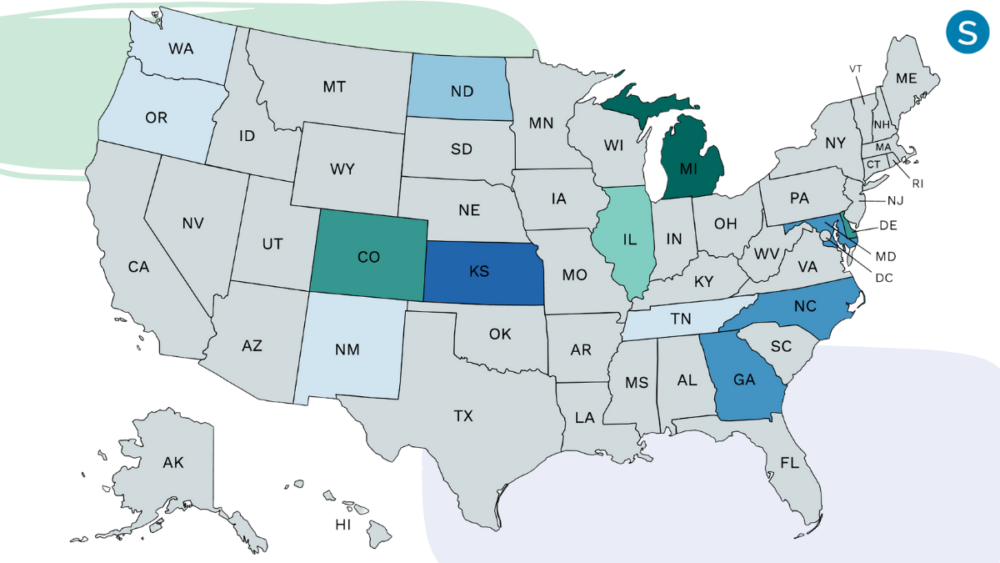Girl Scouts to parents: Don’t force your kids to give hugs (no, not even to Grandma)

The holidays are here, which means that it is time to enjoy food, family, fun … and forced hugs?
Yep. Most kids know the drill. They arrive at grandma’s house for Thanksgiving dinner, or they hear the doorbell ring as relatives start appearing for festivities at their own house. The kids are excited and happy to spend time with their favorite people, but suddenly as the noise increases and people start cooing and reaching out for them, they might start to feel scared. Shy. Embarrassed. Maybe even a little threatened.
And that’s when Mom or Dad start to issue commands: Give Grandma a hug. Go give your Uncle Mike a kiss. Grandpa wants you to sit in his lap. Go give everyone kisses and hugs or you’re not getting any pie.
It’s harmless, right? We want our kids to be gracious and loving, especially to our family, so we are quick to order them to pucker up. But are we sending our kids a dangerous message when we do this?
It’s very possible. Some experts say forced physical contact could be harmful for children. In fact, the Girl Scouts just posted an important PSA on this topic, and the message is going viral among parents, especially parents of young girls.
Girl Scouts’ developmental psychologist Dr. Andrea Bastiani Archibald explains why these obligatory hugs are so problematic:
“The notion of consent may seem very grown-up and like something that doesn’t pertain to children, but the lessons girls learn when they’re young about setting physical boundaries and expecting them to be respected last a lifetime, and can influence how she feels about herself and her body as she gets older. Plus, sadly, we know that some adults prey on children, and teaching your daughter about consent early on can help her understand her rights, know when lines are being crossed, and when to go to you for help.”
In other words, when you tell your child to ignore that little voice inside of her that says “No, I don’t want to be touched right now,” you could setting a dangerous standard. Kids need to learn from a very young age that they have the right to set their own boundaries when it comes to being touched, and to learn that other people should always respect these boundaries.
“Think of it this way, telling your child that she owes someone a hug either just because she hasn’t seen this person in a while or because they gave her a gift can set the stage for her questioning whether she ‘owes’ another person any type of physical affection when they’ve bought her dinner or done something else seemingly nice for her later in life,” the Girl Scouts wrote in their statement.
When you don’t force your children to show physical affection, you open the door for them to feel safe coming to you if someone ever tries to touch them in a way that makes them uncomfortable. It will also teach them to respect other people’s boundaries, such as not badgering their classmate for a hug if she doesn’t want to give one, or not forcing cuddles on a sibling who wants to be left alone.
So, does this mean your only option is to leave older relatives with hurt feelings when your children don’t give them hugs? No, not at all.
Instead of saying, “Give Grandma a hug right now or you’re in trouble,” you might say, “I am so happy to see Grandma! I am going to go give her a hug. You can give her one too, or wait until you’re ready.”
Leave the choice in your children’s hands and then model affectionate, respectful physical contact. In all likelihood, they will follow suit when they feel comfortable and ready to do so. After all, kids are very good at imitating adults’ actions, so you’ll probably get better results if you simply model the behavior you want to see from your children.
Parenting and sexuality educator Airial Clark says you can also offer your children alternatives to giving hugs. A simple handshake or an exuberant high-five might do the trick when a child is not comfortable hugging someone.
To ease your discomfort as a parent, Clark suggests saying something such as, “We’re into high fives right now” or “We’re working on personal space.”
It turns out that a lot of folks agree with the Girl Scouts’ message of consent and bodily autonomy. Here are a few of the reactions from Twitter:
Children should be taught to develop and trust their instincts. If they’re not comfortable with a hug, handshake may be appropriate.
— Rich Paul (@RichRegPaul) November 21, 2017
I actually agree with this. I hated hugging relatives as a kid. I actually kicked and screamed when I was out in the arms of an uncle. Nothing happened I just didn’t want to. Still to this day not a fan of the cheek kiss or hug to people I don’t really care about
— Lori (@LoriKnowsLuxury) November 21, 2017
It’s not that bad of an idea. Just think back to the creepy aunt that always kissed you and it made you cringe. Or the uncle that always made uncomfortable comments about how much you’ve grown. As adults sometimes we forget how uncomfortable that forced love made us.
— SuperCaliSwagaliciousCrippyHellaDopeShit✌🏾♿️ (@TheseTweetsBe) November 21, 2017
Of course, others disagree:
We are human, not robots. Hug your family whenever you get the chance, you never know when it may be your last. @girlscouts
— Kari MacDaniels (@magesticsloth) November 21, 2017
I don’t know but if I was Grandma and my grandkid offered me a handshake instead of a hug I tell them fly a kite sell your own cookies.
— Race Bannon (@RaceBannon16) November 21, 2017
Where do you stand on this important issue? Do you think the Girl Scouts have a point, or are they taking it too far?





